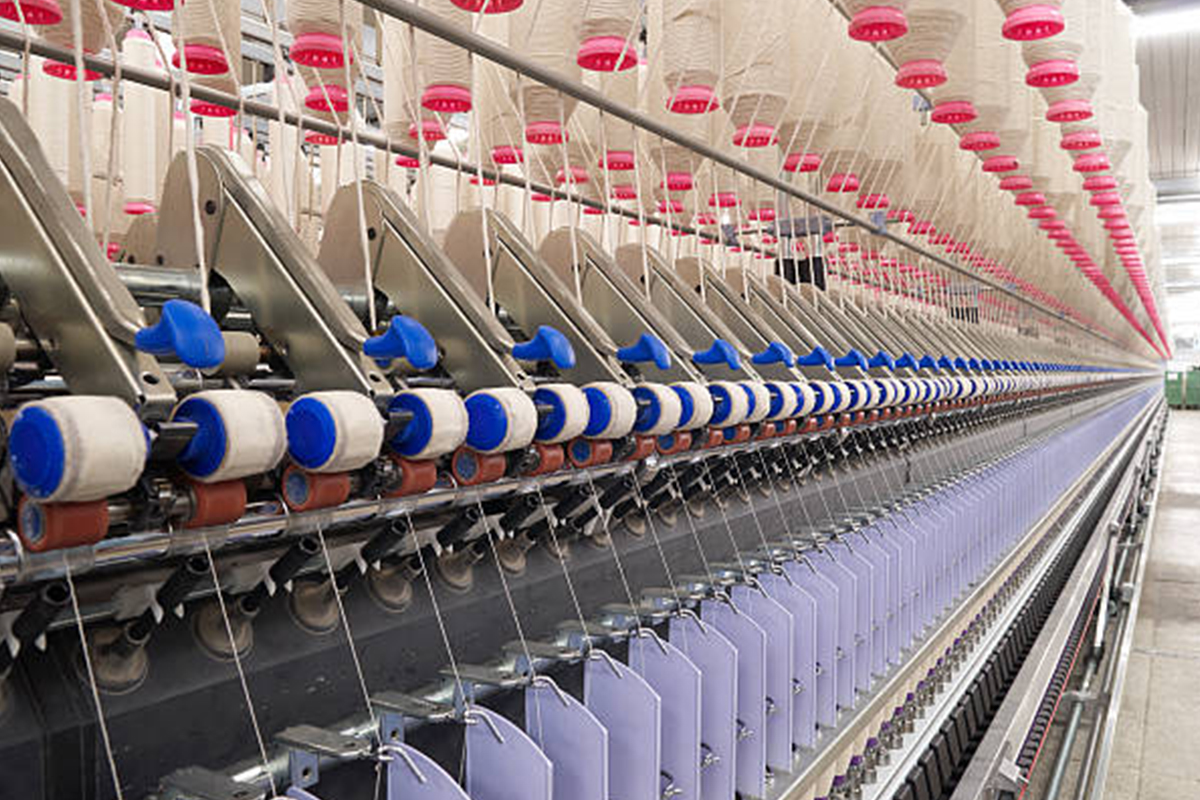Spinning
Spinning is the essential process of twisting fibers together to form yarn, which serves as the foundation for weaving or knitting fabrics used in garment production. Historically, fiber was spun by hand using basic tools such as spindles and distaffs. However, with technological advancements, the spinning wheel became a pivotal tool in the textile industry.

In our infrastructure as garment exporters, spinning plays a critical role in transforming raw cotton into yarn suitable for weaving or knitting. Once we receive bales of cotton lint from our cotton fields or suppliers, the spinning process begins.
Modern spinning involves advanced machinery that automates the twisting of fibers to create yarn. These spinning machines, ranging from ring spinning to open-end spinning, offer varying levels of productivity and yarn characteristics. Ring spinning, for instance, produces high-quality yarn suitable for finer fabrics, while open-end spinning offers greater efficiency for producing bulkier yarn.
Our spinning infrastructure is equipped with state-of-the-art spinning machinery, ensuring efficiency and consistency in yarn production. We prioritize quality control throughout the spinning process, monitoring parameters such as yarn strength, evenness, and twist level to meet the desired specifications for our garments.
Moreover, our spinning operations adhere to sustainability principles, optimizing energy usage and minimizing waste generation. We invest in eco-friendly spinning technologies and processes to reduce our environmental footprint while maintaining high productivity.
Once the spinning process is complete, the yarn is wound onto cones or packages, ready for the next stage of production. By integrating spinning into our infrastructure, we streamline the garment manufacturing process, ensuring a reliable supply of high-quality yarn to meet the demands of our customers in the global market.
